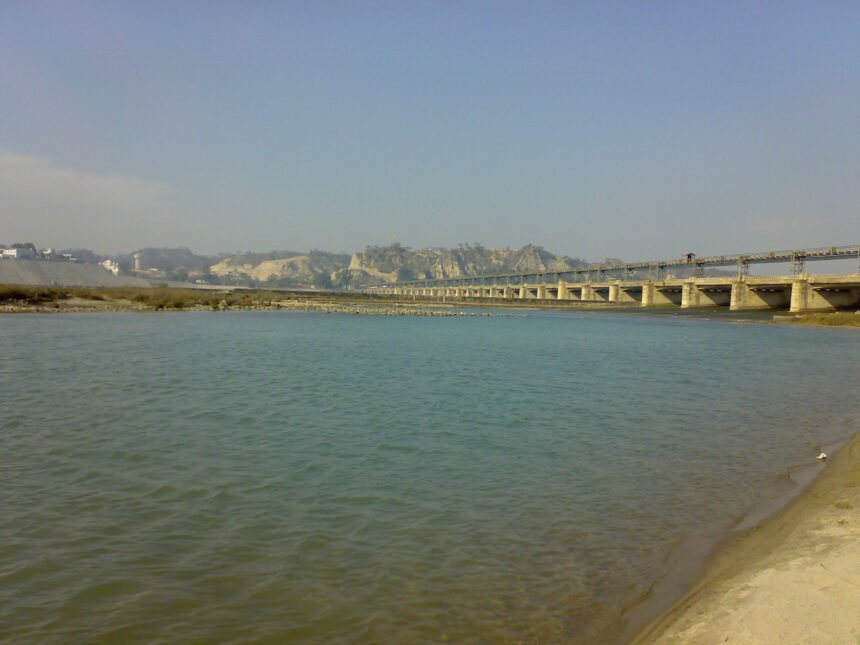In a compelling incident that unfolded on Tuesday, an Indian citizen in his 50s was swept into Pakistan by the raging floodwaters of the Sutlej River near Ganda Singh Wala, Kasur district of Punjab. The man, who is deaf and communicates solely through sign language, found himself in an unfamiliar territory after the forceful current carried him approximately 70 km from Lahore. On Wednesday, officials in Pakistan’s Punjab province confirmed that the individual has been handed over to an intelligence agency for further investigation.
The rescue operation was carried out by the vigilant team of Rescue 1122, who promptly responded to the emergency. The spokesperson for Rescue 1122 revealed that the Indian national identified himself as a Hindu, providing some insight into his background. However, due to his hearing impairment, obtaining more information about his circumstances and the circumstances leading to his perilous situation remains a challenge.
With both countries sharing a historically complex relationship, incidents like these can sometimes add to the diplomatic sensitivity. It is essential for the authorities to handle the situation with care and transparency, ensuring that the man’s rights are protected and respected during the investigation process.
As news of the incident spreads across borders, there is hope for a swift resolution that would allow the Indian citizen to be safely repatriated. The role of the intelligence agency in understanding the details of the man’s inadvertent crossing into Pakistan is crucial, as it would shed light on the circumstances that led to this extraordinary event.
The incident also highlights the significance of effective disaster management and preparedness on both sides of the border. Floods can be devastating natural disasters, wreaking havoc on lives and property, and it is essential for authorities to have robust systems in place to respond promptly to such emergencies.
In the meantime, humanitarian organizations and officials from both countries can work together to ensure that the man receives appropriate care and assistance. Given his communication challenges, specialized support may be necessary to facilitate the process of understanding his needs and concerns.
Amidst the complexities of cross-border relations, stories of human perseverance and compassion shine through. The man’s plight emphasizes the importance of empathy and cooperation, irrespective of geopolitical boundaries. Both India and Pakistan can seize this opportunity to exhibit goodwill by collaborating to reunite the man with his family and homeland.
As the investigation unfolds, it is hoped that the true sequence of events leading to the man’s entry into Pakistan will come to light. This incident serves as a reminder of the unpredictability of nature and the need for international cooperation in addressing humanitarian challenges.
While this article provides a brief overview of the situation, the incident is likely to continue drawing attention from various quarters. It is crucial for media outlets and concerned individuals to remain sensitive to the matter, avoiding unnecessary speculation or sensationalism.
As the man’s fate hangs in the balance, the governments of India and Pakistan have an opportunity to showcase their commitment to humanity and compassion by working together to resolve this unusual and delicate situation. A collaborative approach will not only aid in reuniting the man with his homeland but also foster goodwill and understanding between the two neighboring nations.




